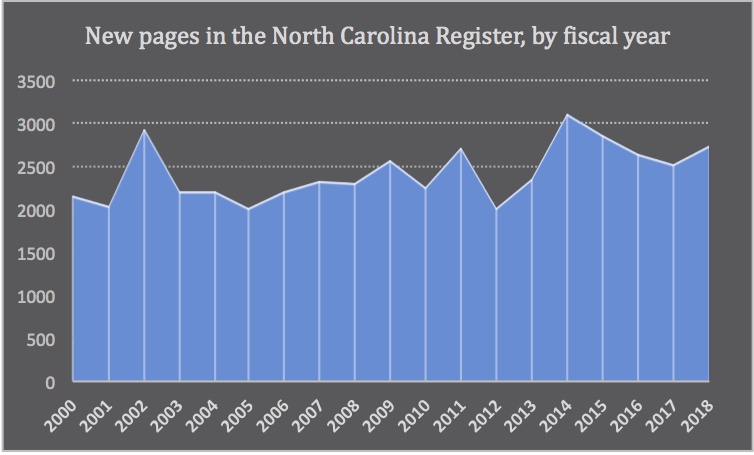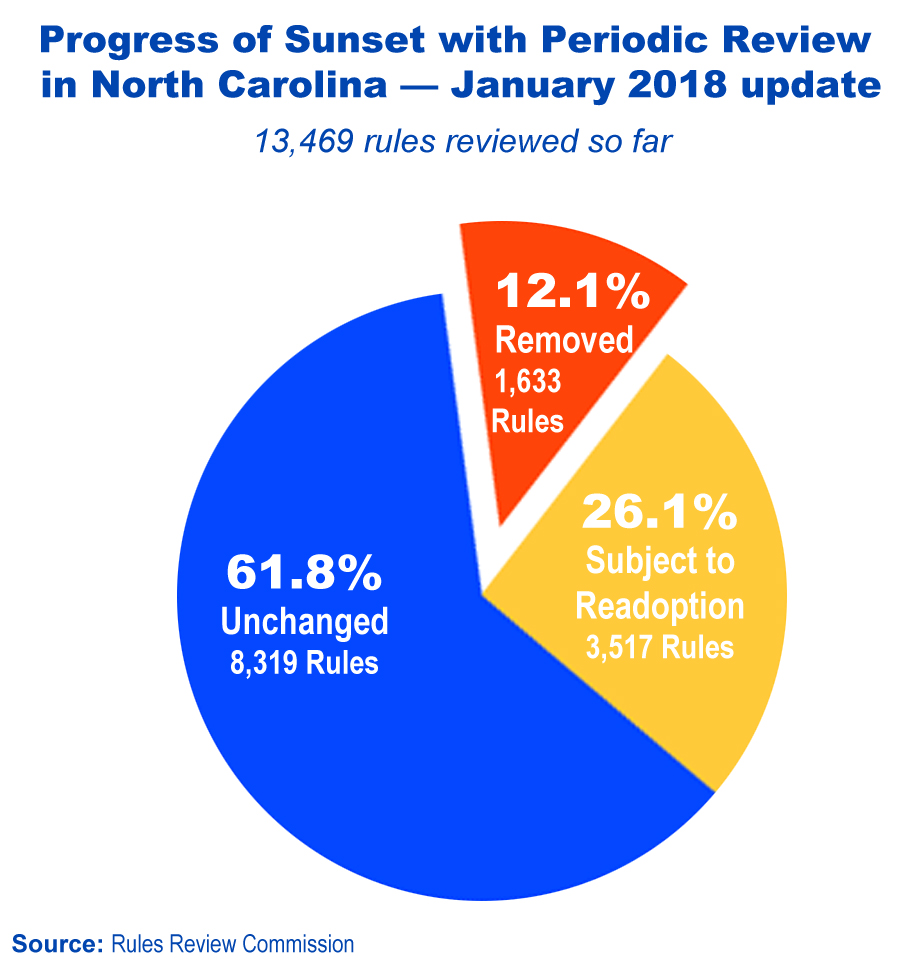Rulemaking is an ongoing process, and red tape is an inevitable byproduct. Here is a snapshot of rulemaking activity in North Carolina this century, as measured by the page counts in the North Carolina Register (which gives information on agency rulemaking, executive orders, proposed administrative rules, contested case decisions, notices of public hearings, etc.):
Trend in State Regulatory Activity, 2000–2018
The growth in the total stock of state regulations — and especially of red tape — has significant, negative economic ramifications:
State regulations have been estimated to cost the private sector in North Carolina up to $25.5 billion in a single year. Such a tremendous toll on private enterprise, especially in terms of deadweight loss, is why it is vital to ensure that state regulations are (1) carefully made, and also (2) periodically checked to see if they’re working, still needed, outdated, or more trouble than they’re worth.
That was the idea behind a 2013 reform bringing sunset provisions with periodic review of state regulations. Rules either are sunset (get repealed) or are reviewed every 10 years. At last count, it was removing about one out of every eight rules reviewed.
 A bill now before the state Senate, House Bill 590, would make a simple but sensible adjustment to sunset with periodic review. The current process allows rules to be re-upped automatically if their originating agency considers them “necessary” and they don’t attract public comment. If they did attract enough public interest, they would have to go back through the scrutiny of the rules adoption process as if they were new rules.
A bill now before the state Senate, House Bill 590, would make a simple but sensible adjustment to sunset with periodic review. The current process allows rules to be re-upped automatically if their originating agency considers them “necessary” and they don’t attract public comment. If they did attract enough public interest, they would have to go back through the scrutiny of the rules adoption process as if they were new rules.
But over 60 percent of rules are being automatically re-upped through this loophole.
HB 590 would close that loophole and have all rules considered necessary go back through the rules adoption process. (Unnecessary rules would still be repealed.)
Such a simple fix would be in keeping with the spirit of the original 2013 reform, and it also has the support of Garth Dunklin, then-head of the Rules Review Commission, as Carolina Journal reported,
“When 61 percent of the rules that are going through this process are staying in the code with no change, they’re not getting the full exposure to public comment or careful examination,” Dunklin said. That “bothers us from a policy standpoint.”
In early December [2016], Dunklin appeared before the Joint Legislative Administrative Procedure Oversight Committee and recommended the General Assembly revise the law to eliminate the option allowing agencies to simply maintain rules without review.
Eliminating the “middle bucket” would bring the law closer to its original objective, “simply that every bill in the code would expire on certain dates, and have to be readopted,” similar to a process other states use, Dunklin said.
“The concept there was to make agencies pick up and look at their rules, and examine their continuing usefulness and efficacy, expose them to the process of public comment that is a part of our rulemaking process,” Dunklin said. Outdated rules could be stricken from the code, and the remaining rules could be improved with renewed scrutiny.

